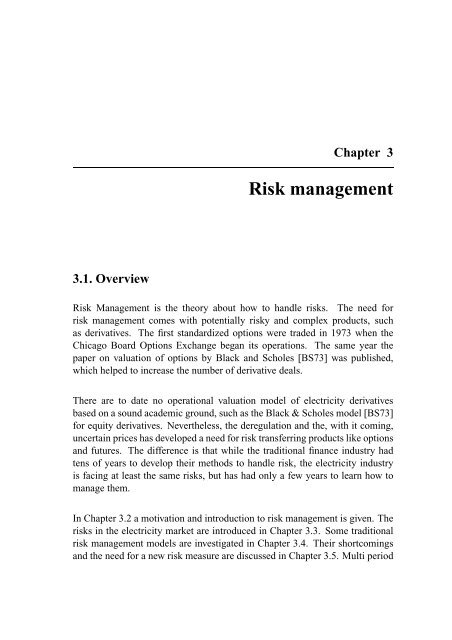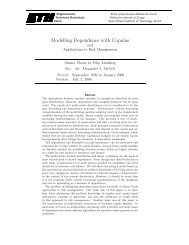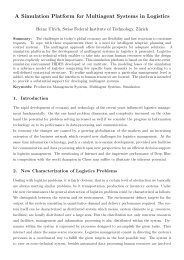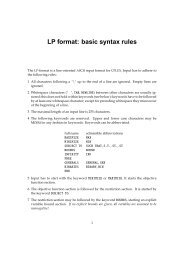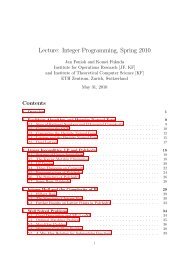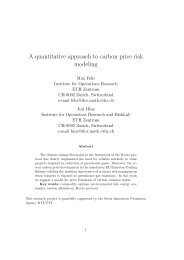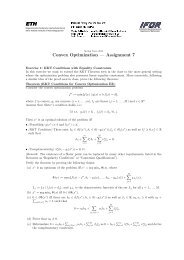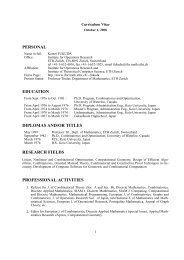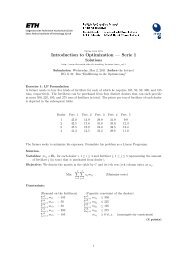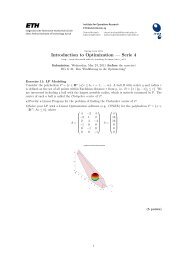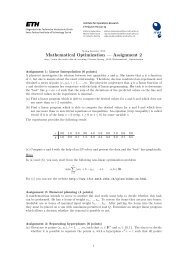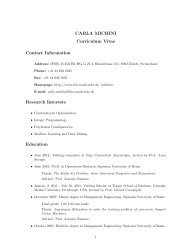Hedging Strategy and Electricity Contract Engineering - IFOR
Hedging Strategy and Electricity Contract Engineering - IFOR
Hedging Strategy and Electricity Contract Engineering - IFOR
Create successful ePaper yourself
Turn your PDF publications into a flip-book with our unique Google optimized e-Paper software.
Chapter 3<br />
Risk management<br />
3.1. Overview<br />
Risk Management is the theory about how to h<strong>and</strong>le risks. The need for<br />
risk management comes with potentially risky <strong>and</strong> complex products, such<br />
as derivatives. The first st<strong>and</strong>ardized options were traded in 1973 when the<br />
Chicago Board Options Exchange began its operations. The same year the<br />
paper on valuation of options by Black <strong>and</strong> Scholes [BS73] was published,<br />
which helped to increase the number of derivative deals.<br />
There are to date no operational valuation model of electricity derivatives<br />
based on a sound academic ground, such as the Black & Scholes model [BS73]<br />
for equity derivatives. Nevertheless, the deregulation <strong>and</strong> the, with it coming,<br />
uncertain prices has developed a need for risk transferring products like options<br />
<strong>and</strong> futures. The difference is that while the traditional finance industry had<br />
tens of years to develop their methods to h<strong>and</strong>le risk, the electricity industry<br />
is facing at least the same risks, but has had only a few years to learn how to<br />
manage them.<br />
In Chapter 3.2 a motivation <strong>and</strong> introduction to risk management is given. The<br />
risks in the electricity market are introduced in Chapter 3.3. Some traditional<br />
risk management models are investigated in Chapter 3.4. Their shortcomings<br />
<strong>and</strong> the need for a new risk measure are discussed in Chapter 3.5. Multi period


